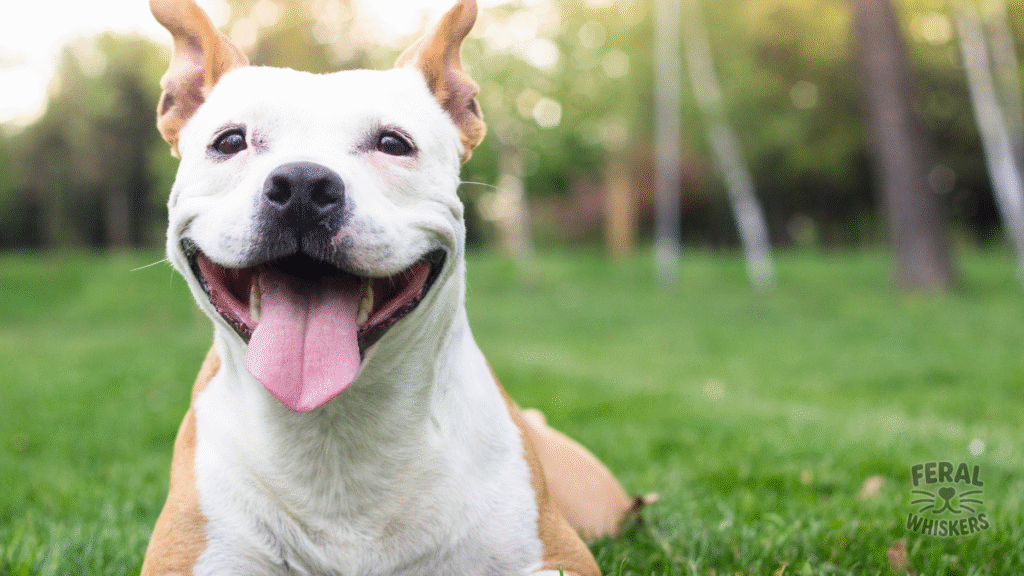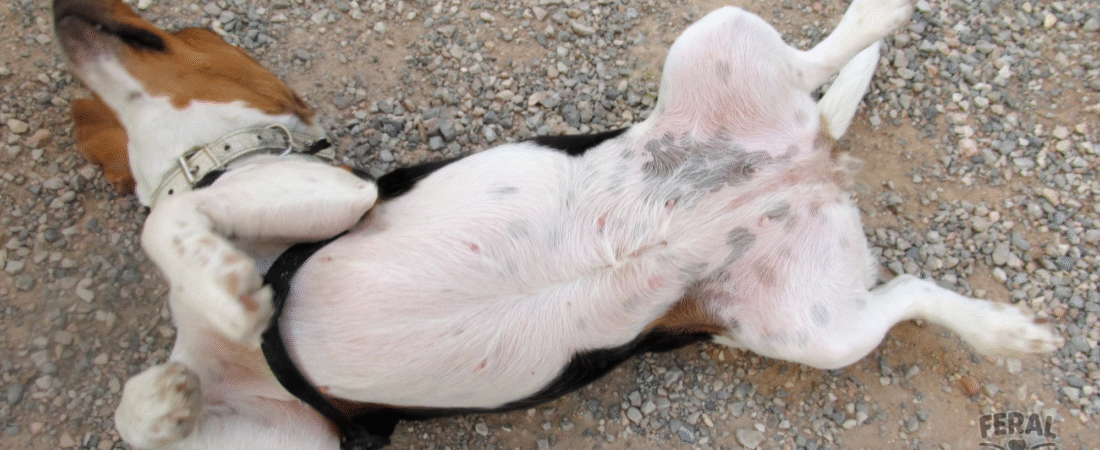📌 Why Digestive Health is the Foundation of Canine Wellness

When we think of a dog’s health, we often picture shiny coats, strong muscles, or playful energy. But all of these depend on something less glamorous: a healthy gut. More than just a food tube, your dog’s digestive system is a complex ecosystem powering immunity, nutrient absorption, emotional balance, and disease prevention.
Just like in humans, a dog’s gut houses trillions of microorganisms — together called the gut microbiome. This living community is so critical that veterinarians now recognize it as a “hidden organ” influencing almost every aspect of health. When the microbiome is balanced, your dog thrives. When it’s not, problems ripple across their whole body.
🦠 The Role of the Gut Microbiome
Your dog’s gut is home to trillions of bacteria, both good and bad. When the good bacteria outnumber the bad, the gut functions optimally:
- Nutrient absorption: Efficiently extracts vitamins, minerals, and energy from food. This means that even if you’re feeding a high-quality diet, a compromised gut might not be able to fully utilize those nutrients, leading to deficiencies or a lack of vitality. A healthy gut lining ensures that essential compounds like amino acids, fatty acids, and micronutrients are properly absorbed into the bloodstream, fueling every cell in your dog’s body.
- Immune defense: Around 70% of the immune system resides in the gut. The beneficial bacteria act as a protective barrier, preventing harmful pathogens from taking hold and signaling to the immune system when a threat is present. A robust gut microbiome helps your dog fight off infections, reduces allergic reactions, and can even play a role in preventing autoimmune conditions.
- Mood regulation: Produces neurotransmitters that influence behavior. The “gut-brain axis” is a two-way communication highway. Gut bacteria produce compounds like serotonin, a key neurotransmitter that impacts mood, happiness, and anxiety levels. An imbalanced gut can contribute to behavioral issues such as increased anxiety, aggression, or lethargy, making a calm gut essential for a calm dog.
- Inflammation control: Prevents chronic inflammation throughout the body. A healthy gut lining is crucial for preventing “leaky gut,” where toxins and undigested food particles can pass into the bloodstream, triggering systemic inflammation. Good gut bacteria help maintain the integrity of this barrier, reducing inflammation that can contribute to conditions like arthritis, skin issues, and even organ dysfunction.
🌿 The Power Trio: Probiotics, Prebiotics & Fermented Foods
1. Probiotics: The “Good” Gut Bacteria
- What they are: Live beneficial bacteria that, when consumed in adequate amounts, confer a health benefit to the host. Think of them as tiny, helpful allies that colonize the gut, working to maintain balance and perform essential functions. Different strains (like Lactobacillus acidophilus, Bifidobacterium animalis, Enterococcus faecium) offer various benefits, so a multi-strain probiotic is often recommended.
- Why they matter: They replenish and diversify the gut flora, helping to crowd out harmful bacteria, aid digestion, and boost immunity. Probiotics can help restore balance after disruptions, produce beneficial short-chain fatty acids (like butyrate) that nourish gut cells, and even compete with pathogens for resources and attachment sites in the gut.
- When to use: Especially helpful after antibiotic use (which wipes out good and bad bacteria), during periods of stress (which impacts gut flora), with dietary changes (to help adapt), or for dogs with chronic digestive issues (such as recurrent diarrhea, constipation, excessive gas, or inflammatory bowel disease). They can also be beneficial for dogs with allergies or a weakened immune system.
👉 Kitchen Tip: Plain unsweetened yogurt with live active cultures can offer gentle probiotic support. Ensure it contains “live and active cultures” on the label and is free from artificial sweeteners (especially xylitol, which is toxic to dogs) or added sugars. Start with a small dollop (e.g., 1 teaspoon for small dogs, 1 tablespoon for large dogs) mixed into their food.
2. Prebiotics: Food for Probiotics
- What they are: Non-digestible fibers that act as food for the beneficial bacteria already present in the gut. Unlike probiotics, prebiotics aren’t living organisms; they are the fuel that helps the existing good bacteria thrive and multiply, creating a more robust and diverse microbiome.
- Why they matter: They selectively stimulate the growth and activity of healthy gut bacteria, helping them thrive and multiply. This selective feeding mechanism means prebiotics specifically nourish the beneficial bacteria, giving them an advantage over less desirable strains. They also contribute to stool bulk and regularity.
- Natural sources: Chicory root (often found in commercial dog foods as inulin), dandelion greens, asparagus, bananas, oats, and psyllium husk. Other good sources include apples (without seeds), carrots, and jicama. These can be added in small, appropriate amounts to your dog’s diet.
👉 Kitchen Tip: Add 1–2 teaspoons of pure pumpkin puree (not pie filling!) to meals. It’s a fantastic source of prebiotic fiber that feeds good bacteria and can help soothe both diarrhea and constipation. For a larger dog, you might use 1-2 tablespoons.
3. Fermented Foods: A Natural Probiotic Boost
- What they are: Foods that have undergone a controlled microbial growth process, resulting in beneficial bacteria and enzymes. This fermentation process not only creates probiotics but also makes nutrients more bioavailable and easier to digest, essentially “pre-digesting” some of the food for your dog.
- Why they matter: They provide a natural, bioavailable source of probiotics and enzymes, making nutrients easier to absorb and supporting a diverse microbiome. The variety of strains in naturally fermented foods can often be more diverse than in a single probiotic supplement.
- Kitchen-friendly options:
- Plain, unsweetened kefir: A fermented milk drink rich in diverse probiotic strains (often more diverse than yogurt). Start with a small amount (1 tsp for small dogs, 1 tbsp for medium/large dogs) mixed into food daily. It’s excellent for gut flora and can be a good source of calcium.
-
- Plain, unsweetened yogurt: As mentioned above, ensure it contains live active cultures. It’s a milder option than kefir for dogs new to fermented foods.
- Fermented vegetables: Small amounts of unpasteurized sauerkraut or kimchi (ensure no onion/garlic, which are toxic to dogs, and low salt content) can be introduced cautiously. The fermentation process breaks down cellulose, making the nutrients more accessible. Start with just a pinch or a quarter teaspoon for small dogs.
🚨 Signs of an Unbalanced Gut
- Digestive issues: Chronic diarrhea, constipation, excessive gas, vomiting, gurgling stomach, or inconsistent stool quality. These are often the most obvious indicators that something is amiss in the gut.
- Skin problems: Itching, hot spots, dull or flaky coat, excessive shedding, or recurrent ear infections. The gut-skin axis means that inflammation or imbalance in the gut can manifest as skin issues.
- Behavioral changes: Anxiety, aggression, lethargy, hyperactivity, or sudden changes in temperament (due to the gut-brain axis and neurotransmitter production).
- Weakened immunity: Frequent infections (e.g., urinary tract infections, respiratory infections), slow recovery from illness, or recurring yeast infections.
- Bad breath: Often a sign of digestive issues, not just poor oral hygiene.
🌿 Holistic Approaches to Gut Health
- High-quality diet: Feed a species-appropriate diet with minimal fillers, artificial ingredients, and common allergens (like corn, soy, wheat). Opt for whole, unprocessed foods, whether it’s a high-quality kibble, raw, or home-cooked diet.
- Rotate proteins: Prevents the development of food sensitivities and provides diverse nutrients. Sticking to the same protein source for years can sometimes lead to the immune system reacting to it.
- Avoid unnecessary antibiotics: Use only when truly needed, as they wipe out good bacteria along with the bad. Always follow up with a course of probiotics after antibiotic treatment to help restore balance.
- Manage stress: Stress significantly impacts gut health by altering the microbiome and gut motility. Provide a calm environment, consistent routine, adequate exercise, and mental enrichment to reduce stress. Consider calming supplements or herbs if needed.
- Introduce slowly: When adding new supplements, probiotics, prebiotics, or fermented foods, always start with tiny amounts and gradually increase over several days to a week. This allows your dog’s digestive system to adjust and helps avoid temporary upset.
❓ FAQs
Q1: Can I give my dog human probiotics?
It’s best to use dog-specific probiotics, as canine gut flora differs from human. If using human-grade, ensure it’s free of xylitol (highly toxic to dogs), artificial sweeteners, or other harmful ingredients. Always check with your vet.
Q2: How long does it take for probiotics to work?
Results vary depending on the dog and the severity of the issue. Some dogs show improvement in stool quality within a few days, while others may take weeks or even months to see more systemic benefits like improved skin or energy. Consistency is key.
Q3: Are all fermented foods safe for dogs?
No. Avoid fermented foods with onion, garlic, grapes, raisins, or high salt content. Stick to plain kefir, plain yogurt with live cultures, or very small amounts of plain, unpasteurized sauerkraut. Always check ingredients carefully.
Q4: Can a healthy diet alone provide enough probiotics?
While a good, whole-food diet is the foundation, modern food processing often reduces the natural beneficial bacteria. Supplementation with probiotics or the inclusion of fermented foods can provide an extra boost, especially for dogs with specific health challenges, during stress, or after medication.
💡 Final Thoughts
Your dog’s gut is a bustling ecosystem, and nurturing it is one of the most impactful things you can do for their health. By strategically incorporating probiotics, prebiotics, and safe fermented foods, you’re not just addressing digestive issues — you’re building a stronger immune system, improving nutrient absorption, and even boosting their mood and overall vitality.
✅ Key takeaway: A nourished gut equals a stronger, calmer, shinier, and healthier dog. Prioritize their digestive wellness for a vibrant life!

